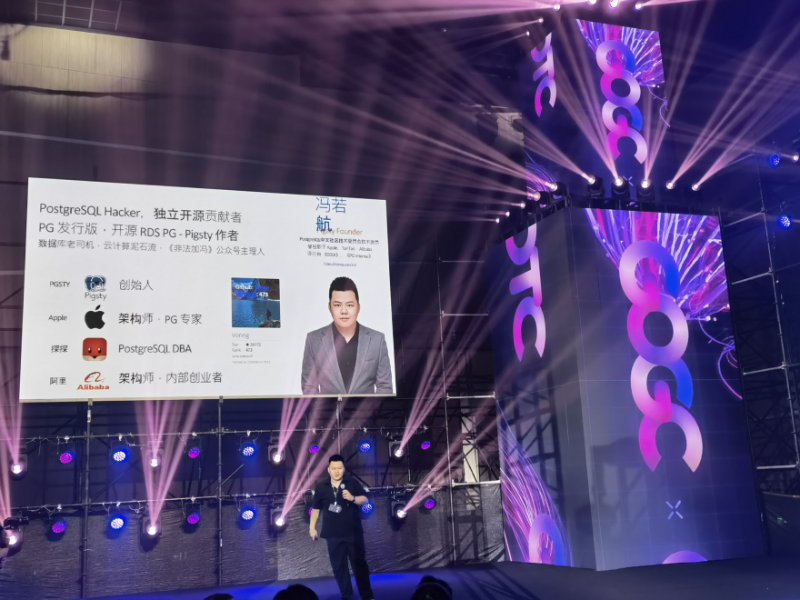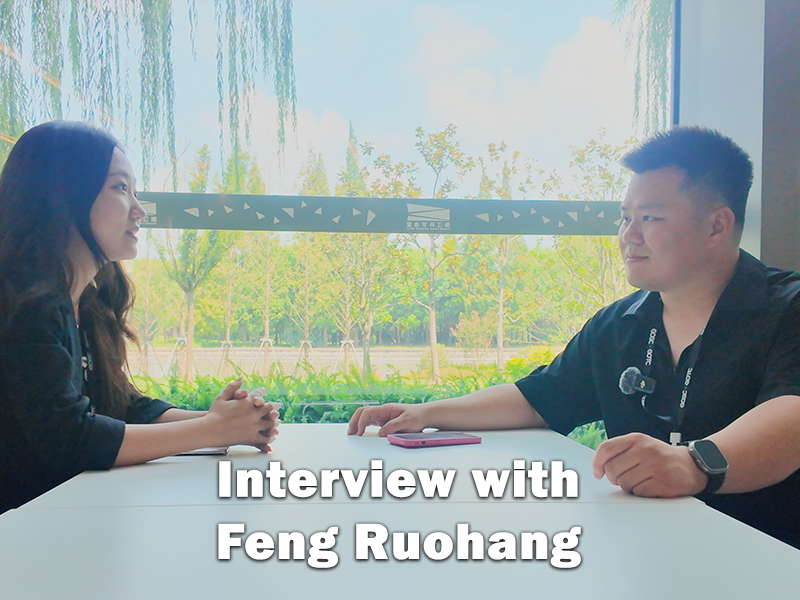- Feng Ruohang, a seasoned database expert and advocate of cloud descent, is the driving force behind Pigsty, an innovative open-source local-first distribution for PostgreSQL.
- With a wealth of experience at tech giants such as Alibaba and Apple, Feng has leveraged his expertise to address the challenges faced by PostgreSQL Database Administrators (DBAs) and to simplify the management of multiple PostgreSQL clusters.
We recently had the opportunity to sit down with Feng. He shares insights into his career journey, the unique advantages of Pigsty over other open-source projects, and his perspectives on the current state of China’s open-source community, particularly within the PostgreSQL ecosystem.
Introduction of Feng Ruohang
Feng Ruohang is the author and maintainer of the open-source local first distribution for PostgreSQL, which is named Pigsty. He is a seasoned database expert, PostgreSQL DBA, architect, full-stack developer, and open-source contributor. Feng has previously worked at Alibaba, Tantan, and Apple. He is the translator of “Designing Data-Intensive Applications” and “PostgreSQL Internals “. He is an advocate of cloud descent.
Also read: GOTC&GOGC convenes in Shanghai: Celebrating innovation, talent, and the future of AI
Q: Could you share with us your working experience in the past and tell us why would you want to create Pigsty project?
My career began at Alibaba a decade ago, where I was introduced to PostgreSQL and became impressed by its capabilities. Transitioning from MySQL to PostgreSQL, I later joined Tantan, where PostgreSQL was used extensively, including in stored procedure development. As a PostgreSQL Database Administrator (DBA), my experience deepened, providing a comprehensive understanding of the system.
Facing challenges managing numerous PostgreSQL clusters, I initiated Pigsty, aiming to automate administrative tasks typically handled by DBAs. The goal was to streamline processes and reduce manual intervention. Encouraged by the positive outcomes, we decided to open-source Pigsty, sharing our best practices and experiences with the broader community. This initiative received significant interest and support, establishing Pigsty as a leading open-source Relational Database Service (RDS) project, driven by the desire to enhance PostgreSQL deployment and management efficiency.
Also read: Interview with Cheng He, professor of computational intelligence: The ‘billions’ problem
Q: Compared with other open-source projects, does Pigsty have any unique advantages?
Pigsty occupies a distinctive niche within the open-source landscape as an open-source Relational Database Service (RDS). Historically, developers have focused on enhancing the core functionality of databases like PostgreSQL and MySQL. Meanwhile, cloud vendors have capitalised on these freely available open-source kernels, wrapping them into services. The proprietary technology they hold is typically their control and administration systems, which they do not contribute back to the community, given the substantial profits they generate from these services. Consequently, cloud-based RDS offerings tend to be costly, owing to the absence of viable open-source alternatives. Pigsty addresses this gap by providing a unique open-source RDS solution.
Pigsty offers six key value propositions. Firstly, we provide an Extensible PostgreSQL environment, bundling nearly half of PostgreSQL’s extensions into RPM packages, making them easily accessible and deployable. Secondly, Pigsty stands for PostgreSQL Infrastructure Graphics Toolbox Service and Utility, offering a comprehensive observability infrastructure that addresses high availability and monitoring systems, essential for managing large-scale production environments.
Thirdly, we excel in graphical representations, providing detailed dashboards that illuminate the inner workings of PostgreSQL. Our observability solution is considered the best in the PostgreSQL ecosystem. Additionally, we implement high availability based on Patroni and Etcd, ensuring seamless failover and system resilience.
Furthermore, we offer automated backups, eliminating concerns about accidental data loss. With Pigsty, setting up a robust and fully functional PostgreSQL environment is as simple as executing a single command, significantly reducing the costs associated with cloud vendors or hiring a DBA.

Q: During the GOTC 2024, you mentioned PG Vector alongside its competitor Milvus. Could you elaborate on any unique aspects of PG Vector that you believe make it more competitive?
“One of the primary advantages of PostgreSQL with PG Vector is the ability to use a single database to meet all data demands, eliminating the need for dedicated components. This means less complexity and fewer systems to manage, as users can leverage existing SQL knowledge with new functions and indices, making it easy to start and use.”
Feng Ruohang, author of Pigsty
When comparing these two databases, it’s important to consider not just the database itself, but the entire ecosystem that surrounds it. When viewed in this context, the comparison reveals a stark disparity. For instance, features such as high availability, point-in-time recovery (PITR), backup recovery, service access, and sophisticated observability require a substantial amount of code to implement. It would be unreasonable to expect a single company to develop a comprehensive solution that can compete with the PostgreSQL ecosystem, which is backed by a vast community and years of development.
One of the key advantages is data consistency. When using a dedicated database, developers must write glue code to move data between different systems and ensure ACID compliance, which can be complex and error-prone. With PostgreSQL plus PG Vector, data integrity and consistency are inherently supported, simplifying the process of data integration, replication, and ensuring the reliability of business operations.
Q: As an active participant in the open-source community, what is your assessment of the current state of China’s open-source community?
In my view, the level of participation from China in the PostgreSQL community is notably lower than the global average. For instance, at the recent annual hacker meeting held in Vancouver last month, only four or five individuals from China attended. Despite the PostgreSQL committee’s expressed desire for greater inclusivity, references to other nationalities such as Japan and India are often made, without explicit mention of China. I believe that Chinese participants need to become more actively involved in the community, making their voices heard through proposals and contributions. This is precisely what I am striving to achieve: to make a meaningful contribution to the PostgreSQL committee from a Chinese perspective.
A personal insight
During the interview, I found Feng Ruohang to be a particularly impressive figure. He is an entrepreneur brimming with passion and technical insight. From his narrative, it is evident that he has a profound love for technology, especially within the database domain. Not only does he possess a solid professional background, but he also has a clear vision for development. His affection for PostgreSQL extends beyond its technical attributes to the open-source ethos and the strength of the technical community it represents. From his time at Alibaba to Tantan, and now as the founder of Pigsty, each step in his career reflects a pursuit of technological excellence and a desire for personal growth. His journey and insights provide an excellent example of how to find one’s place in a rapidly evolving industry and achieve dreams through relentless effort.

